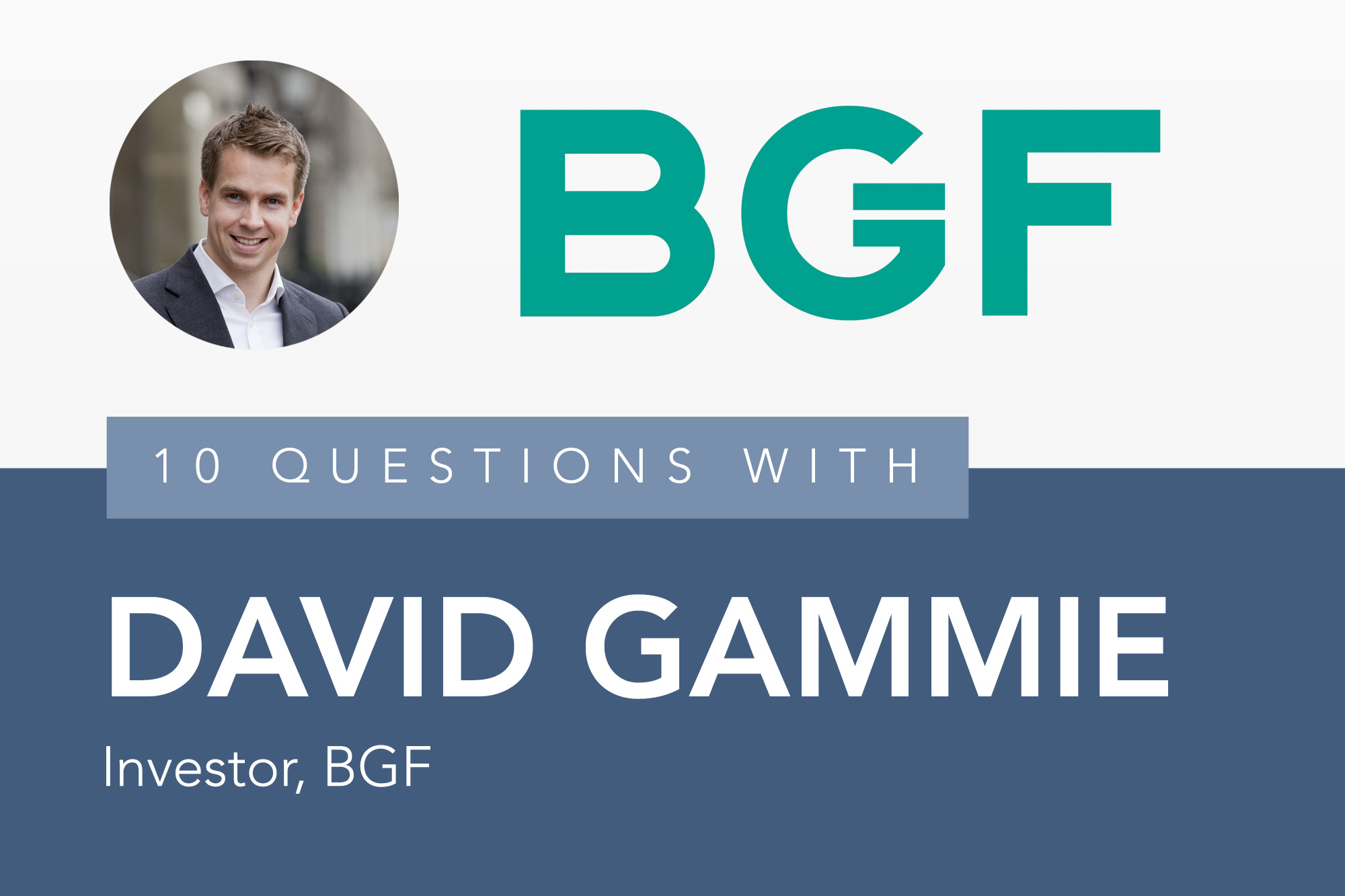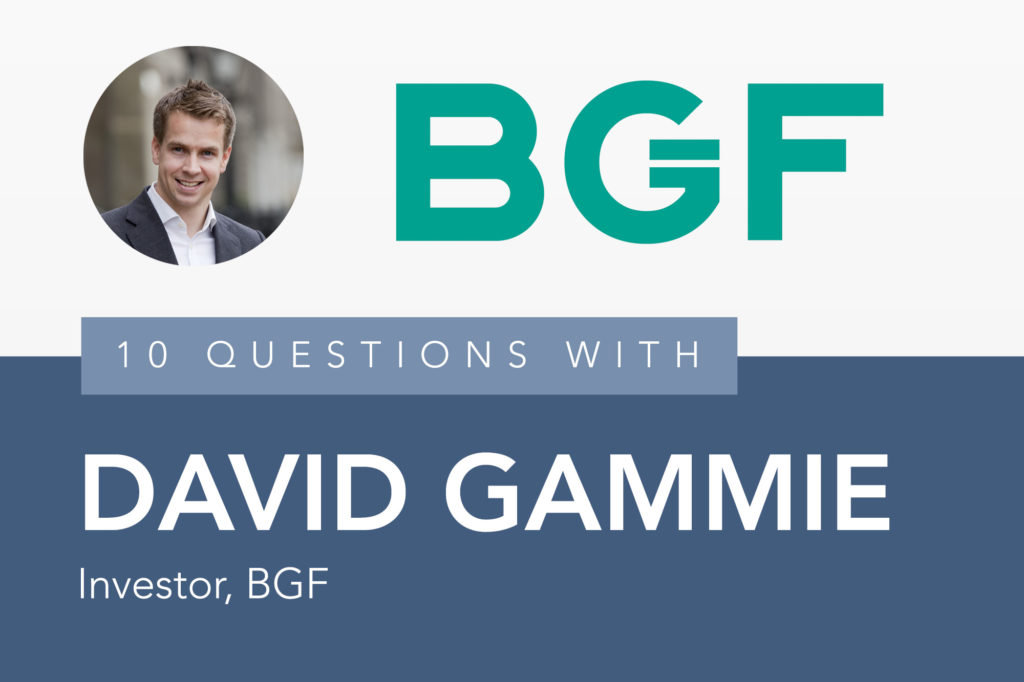In the our latest edition of the Rutherford Cross “10 questions with” series we hear from David Gammie, Investor, BGF who discusses the importance of strong communication skills, being a team player and the ability to analyse your strengths and weaknesses if you are hoping to develop a career within Investments/Corporate Finance.
What does a typical day look like for you?
Every day is different, which keeps it interesting!
My current role covers quite a wide area of responsibility, broadly split into three buckets:
- Originating new investments – this includes keeping in touch with the local business community, through corporate finance advisors, bankers and lawyers, and crucially meeting new prospects – companies we could potentially invest in. Because of BGF’s wide investment mandate, the type of companies we meet varies significantly from young tech companies, through to more mature multi generation family businesses. I’ve toured lots of businesses from fish farms, through to breweries.
- Deal execution – structuring and agreeing deal terms with companies, and then managing the investment process, including various due diligence streams (financial, commercial, legal etc), presenting to BGF’s investment committee, and negotiating legal terms with the companies we are investing in.
- Portfolio management – working closely with the companies we invest in post investment. I currently sit as a non-executive director on three of our portfolio companies.
As an example, yesterday included some time spent helping one of our portfolio companies with their banking arrangements and introducing someone to help them with their technology strategy, reviewing a business plan for a new opportunity that we have been introduced to, and undertaking a market referencing call for another new investment opportunity we are looking at.
What attracted you to join BGF?
The variety and the opportunity to work across the deal cycle, from origination through to portfolio management. BGF’s investment mandate is wide, which means you get exposure to lots of different sectors, and businesses at different stages of development.
Prior to BGF I worked in the deals team at PwC, primarily focusing on financial due diligence. Whilst it was interesting work, it only focused on one element of the deal cycle. With my current role you get the benefit and reward of working with companies for a more prolonged period, where you can see them execute their plans.
What defining career moments have there been for you so far and what career advice would you give yourself when you were younger if you could?
I feel there is a lot I still want to achieve in my career. Getting my CA qualification was a big moment, as I feel that gave me options to do a lot of different things. I qualified whilst working in the Assurance practice at PwC, getting the qualification gave me the opportunity to move on to other things. Another moment was being appointed to my first board seat at BGF – being trusted with the responsibility of managing BGF’s investment and becoming a non-executive director.
Advice I would give my younger self: be confident in your ability, gain a variety of different experiences and perspectives, don’t be afraid of doing new things, and approach people and ask questions – generally people are very open and willing to help and share advice.
What does it take to be a successful leader?
Successful leaders need several attributes, but I’d call out balance, self-awareness, and great communication skills. The role of being a leader is hugely varied. Being aware of your respective strengths and weaknesses is essential when building and leading a team. Also being able to flex your leadership style depending on the situation is important. Ultimately, a lot more can be done by an effective well focused and balanced team than by any individual, so a successful leader is one that can build, harness, and enable a successful team.
Having carried out your CA training with PwC in their Assurance team, how do you think this benefited your career?
It is a great learning ground. You get a rigorous understanding of businesses from the basics up. It also gave me a great opportunity to see and understand a variety of different businesses in different sectors.
For those who might be interested in joining BGF’s investment team – what kind of person do you look for?
It varies – we always want to ensure the team is well balanced, so we have people across the business from a range of different backgrounds, from the big4 trained CAs through to people with backgrounds in consulting and investment banking.
We want bright people that are ambitious who have a good blend of interpersonal skills to be able to build strong relationships with companies and advisors, but also have the technical toolkit to analyse businesses. Being a team player is massively important. Typically, we look for a minimum of 4-5 years of relevant post-university experience, usually in some form of deals environment.
How would your colleagues describe you?
You’ll need to ask them! Hopefully a good team player. Considered and thoughtful.
If you could invite two people to a dinner party (living or deceased) who you choose and why?
Only two…tough one. Probably a bit cliché, but having read his autobiography and visited the country, including Robben Island, Nelson Mandela would be one. The other would be the Queen – she has seen 14 different prime ministers, from Churchill to Boris.
What is the best travel destination you’ve visited?
So far, it has been Japan. My wife and I visited last summer and toured around. Such a beautiful country with a great culture and amazing food.
If you weren’t in Finance, what would you be doing (for a career)?
I’d probably be working on the family farm in the Highlands.
For more information relating to the finance market in Scotland or if you would like to arrange a confidential conversation to discuss your career aspirations, please contact Georgina Millyard – [email protected].








